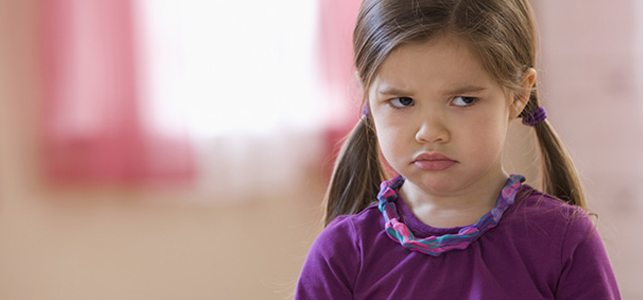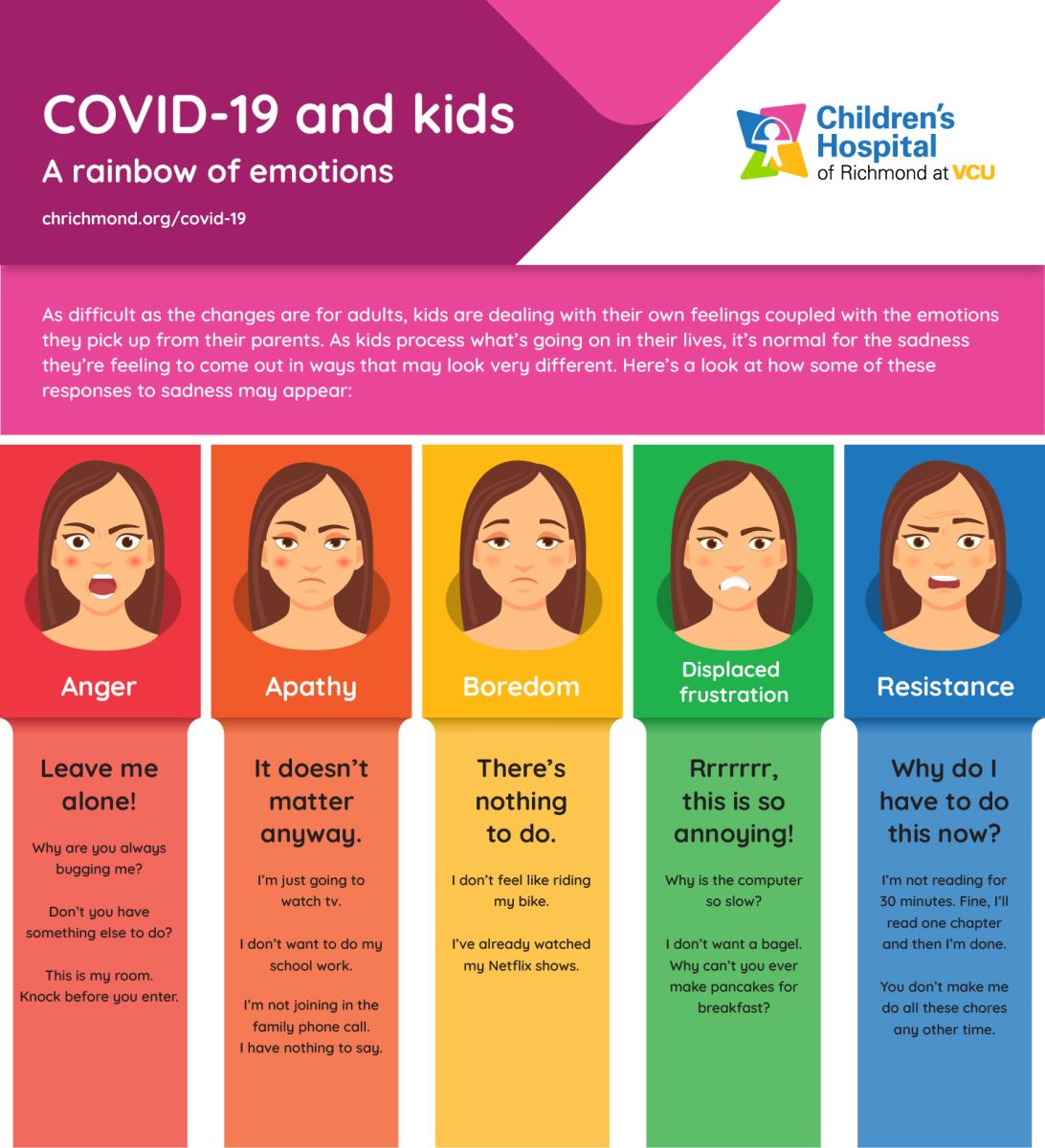Children's Emergency Department is now located in Children's Tower: 1001 E. Marshall Street.
Learn more
As difficult as the changes that have come with COVID are for adults, kids are dealing with their own feelings coupled with the emotions they pick up from their parents. As kids process what’s going on in their lives, it’s normal for the sadness they’re feeling to come out in ways that may look very different.
Perhaps they’re protecting themselves from feelings of vulnerability and uncertainty. Maybe they’re not sure how to act, so their stress builds up and manifests in unexpected ways. It’s helpful to remember that this mixture of emotions is likely as confusing for them as it is for parents.
 Apathy
ApathyThe first, and often dismissed, step for parents is looking within yourself.
“Until parents acknowledge our own annoyance, disappointment or other emotions around our current situation, it’s difficult to see our children in a sympathetic light,” says Dr. Bela Sood, child and adolescent psychiatrist. “Recognizing our emotions – adults and kids alike – is the first step in addressing them and working to make the situation better.”
Take the time to process these feelings in whatever ways work for you. This could include meditation, exercise, outside time, phone calls with friends or anything else that proves helpful. The combination will look different for everyone.
When your head is a little clearer, you’re in a better place to help your child. Taking a good look at a child’s actions, or reactions, can help with assessing the meaning behind them.
“If these reactions are very different from a child’s baseline personality, I would sit down with them and acknowledge how everything has changed recently. Address that it looks like they have changed too and talk through ways you can make the situation better, together,” adds Dr. Sood.
The same principles apply here as with other situations where children may feel a loss of control over a situation. Parents can help them process the situation by:
Let them know you understand it’s a hard time and it’s okay that they feel sad or frustrated. You can share how you’re feeling so they know they’re not alone.
In this case, it’s the loss of control and of daily life as they knew it. Once you’ve validated their feelings about the situation, help them accept that certain things are outside their control and refocus on moving forward within the situation. This may include making sure they do their school work so they are not behind when they return to the classroom.
Create routines, including pieces that are familiar to them such as consistent wake-up and bedtimes. A structured day may also include time for reading, school work, relaxing, fresh air and chores. Ease their concerns as much as possible by letting them know you’re there for them and that things will eventually get better.
When many things feel out of control, it can be helpful for kids to take on responsibility when possible. This could include being accountable for keeping their bedroom clean, picking up toys, making lunch, folding laundry or other household tasks, depending on their age. Invite them to join you in a game or other activity, without pressure if they decline.
No matter what is going on in the world around them, children look to their parents for guidance, support, parameters and unconditional love.
Just as there is no magic cure for COVID-19, there is no miraculous formula for handling the emotions that come along with it – but you’ll never go wrong by loving yourself, embracing your children and understanding that some moments will be better than others.